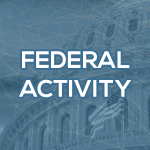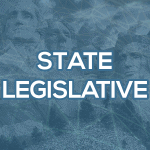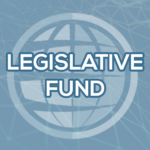Earlier this month, the CFPB issued an Advisory Opinion reminding debt collectors of their obligation to comply with the Fair Debt Collection Practices Act and Reg F’s prohibitions on false, deceptive, or misleading representations in the collection of medical debt (see RMAI’s October 4, 2024 Member Alert). The Advisory Opinion increases the scrutiny on those collecting medical debt by requiring substantiation of the medical debt as well as ensuring documentation of payments, records of compliance with financial assistance policies, confirmation that there had been no upcoding of services (in which a patient is billed for more expensive services than those received), and more. The Advisory Opinion makes clear the debt collector’s liability under FDCPA and Reg F for any violations.
The CFPB issued this interpretative rule under the cover of an Advisory Opinion, which often eliminates the requirement for public comment.
Earlier this summer the CFPB issued a notice of proposed rulemaking to amend Regulation V to generally prohibit the reporting of medical debt unless a specific exception applies. The final rule is expected soon.
RMAI also expects the CFPB to issue a final rule any day to regulate data brokers. In an earlier Request for Public Information, the CFPB described data brokers as an “umbrella term to describe firms that collect, aggregate, sell, resell, license, or otherwise share consumers’ personal information with other parties.” In the forthcoming final rule, data brokers will likely face tighter restrictions as the CFPB has hinted that they would be regulated as a credit reporting agency and be required to comply with the FCRA.
On June 3, 2024, the CFPB’s Registry of Nonbank Covered Persons Final Rule was issued (see RMAI’s June 10, 2024 Member Alert). RMAI members should note that the Large Participant CFPB-Supervised Covered Nonbank registration period is October 16, 2024 – January 14, 2025. Additional important dates can be found online:
- CFPB’s Nonbank Registry Webpage
- The CPFB has also issued the linked chart to outline important dates and processes.
As Congress reconvenes following the election for a lame duck session, joint resolutions may be introduced into Congress under the Congressional Review Act (CRA). An CRA joint resolution can be passed by Congress to disapprove of a final regulatory rule, thus making it invalid. While the likelihood of success for CRA joint resolutions is low, it is still a path for potentially overturning CFPB rules. On September 29, 2024, RMAI signed onto a joint industry letter addressed to the House Financial Services Committee aimed at nullifying the CFPB’s Final Rule on Registry of Nonbank Covered Persons Subject to Certain Agency and Court Orders. The letter can be read here.
RMAI monitors, tracks, and responds to legislative and regulatory activity in all 50 states as the need arises. Backed by RMAI’s State Legislative Committee and a team of state lobbyists, RMAI educates legislators and regulators about the industry and the negative impacts or unintended consequences a bill would have on businesses and consumers. In 2024, RMAI has so far retained lobbyists in the following states: California, Colorado, Connecticut, Maine, Michigan, New York, New York City, Oregon, and Rhode Island. RMAI has also provided a financial contribution to a Nevada coalition fighting two ballot initiatives, and to the North Carolina Creditors Bar who is fighting a medical debt bill. If you have an interest in volunteering in RMAI’s grassroots advocacy efforts, please contact RMAI General Counsel David Reid at (916) 779-2492 or [email protected]. The following is a sample of the legislative activity over the prior month that has direct impact on the industry:
California SB 1061 [Chapter 520] Effective: January 1, 2025 – This law prohibits a person from furnishing information regarding a medical debt to a consumer credit reporting agency and will make a medical debt void and unenforceable if information is furnished to a consumer credit reporting agency. The law narrowly defines medical debt to mean “a debt owed by a consumer to a person whose primary business is providing medical services, products, or devices, or to the person’s agent or assignee, for the provision of medical services, products, or devices.” [RMAI had opposed earlier versions of this legislation due to those versions having a broad definition of “medical debt” that would have included credit cards, home equity lines of credit, general-purpose lines of credit, and general-purpose unsecured installment loans. RMAI had advocated for a narrower definition which was ultimately adopted in the final weeks of the legislature which mirrors the definition used by the CFPB in their proposed rulemaking.]
California SB 1286 [Chapter 522] Effective: January 1, 2025 – This law expands the scope of the Rosenthal Fair Debt Collection Practices Act to prohibit debt collectors from engaging in unfair or deceptive acts or practices in the collection of commercial debts owed by a natural person of $500,000 or less that were entered into, renewed, sold, or assigned on or after July 1, 2025. [RMAI and a coalition of industry participants were adamantly opposed to this bill. While the industry was not opposed to a new act that statutorily mandated certain best practices in the collection of commercial debt, placing these provisions within a consumer collection act is misguided and fundamentally unworkable. We believe this broad scope will result in an overwhelming burden on businesses and creditors alike, leading to significant operational challenges. For example, while individual consumers have the right to demand that creditors cease contact, it is unclear under SB 1286 whom a creditor or collector may contact concerning the covered commercial debts. This ambiguity raises concerns about potential violations of privacy and confidentiality, particularly regarding the disclosure of debt details to employees handling accounts payable. This bill passed both houses of the legislature, with the minority party in opposition.]
Massachusetts HB 4429 – This bill would, among other things: (1) increase the garnishment exemption from 50x state minimum wage to 65x state minimum wage; (2) reduce the statute of limitations (SOL) in an action for the collection of a consumer debt from six to five years; (3) prohibit the revival of a debt that is beyond the statute of limitations through the making of a payment; and (4) reduce the time allowed to take action to enforce a judgment from 20 to 10 years but allows renewing the judgment for an additional 10 years. If passed, the bill would take effect on January 1, 2025. [RMAI has been opposing this bill since 2014 when it was first introduced. After eight years of negotiations and countless amendments, RMAI, other industry participants, and consumer advocates agreed to amendments that resulted in a neutral position by the industry. Among items removed from the bill through RMAI’s efforts from its 2014 introduction: (a) 90x minimum wage garnishment exemption; (b) expungement of the debt once the SOL expires; (c) reducing the SOL from six to three years; (d) preventing the tolling of the SOL through a payment prior to the expiration of SOL; (e) reducing the enforcement of a judgment from 20 to 5 years with no renewal; (f) applying the bill’s provisions to real property; and (g) once the consumer exceeds the exemption threshold, only being able to garnish on income above the threshold.]
Michigan SB 408 – This bill would among other things: (1) increase the garnishment exemption from 30x federal minimum wage to 80x state minimum wage; (2) limit garnishment to 10% of earnings in excess of the garnishment exemption and then 15% of any earnings over $1,200; (3) create a wild card exemption up to $17,000; (4) eliminate all tax garnishments for judgments obtained pursuant to a “consumer debt”; (5) increase the homestead exemptions from $35,000 to $250,000 ($350,000 for seniors and those with disabilities); and (6) increase various property exemptions including for automobiles, household goods, tools of the trade, agricultural, etc. [RMAI and an industry coalition are vigorously opposing this bill. RMAI has retained a Michigan lobbyist. RMAI has had in-person meetings with the bill sponsors and key legislators, followed by several virtual meetings with the Senate sponsor, to express our concerns. We recently received several draft amendments proposed by the sponsor which would make the bill more acceptable, but we remain in opposition due to confusion over garnishment calculations.]
Fourth Circuit Holds “Mere Existence of Inaccurate Information” Insufficient for Article III Standing
Fernandez v. RentGrow, Inc., No. 22-1619, 2024 U.S. App. LEXIS 23120 (4th Cir. Sep. 11, 2024)
A consumer submitted an application to rent an apartment, and the owner of the complex (“owner”) sent the application to a tenant screening company (“company”) that performed a background check. The company’s reports were formatted to include at the top of each page a recommendation to “accept, reject, or accept with conditions.” The first page also included “Reasons for Result” with a list of “Items to Review.”
In this case, the report recommended rejection based on an alleged criminal history and “1 possible match in OFAC name search.” The owner rejected the application, but later accepted it after the consumer explained the criminal records were for a different individual. The possible OFAC match was not discussed. The OFAC is “the United States Treasury Department’s Office of Foreign Assets Control’s (OFAC’s) list of specially designated nationals who threaten America’s national security.”
The consumer filed a lawsuit against the company alleging it “willfully failed to follow reasonable procedures to assure maximum possible accuracy of OFAC information included in tenant screening reports,” in violation of the Fair Credit Reporting Act (“FCRA”), 15 U.S.C. § 1681e(b).
Discovery revealed that the owner’s property manager who reviewed the consumer’s report didn’t recall if she looked at the section about a possible OFAC match and “admitted she was not sure what OFAC is.” She recalled that the only reason the consumer’s application warranted further review was because of the alleged criminal record.
The trial court, in part, denied the company’s motion for summary judgment and held that the consumer “did not need to show that anyone at [the apartment complex] actually read and understood the OFAC alert to demonstrate a concrete injury; dissemination of the misleading report was enough.”
On appeal, the U.S. Court of Appeals for the Fourth Circuit considered the issue of Article III standing and whether the consumer suffered a “concrete injury in fact.” The consumer argued that “dissemination of an inaccurate tenant screening report to a third party is always sufficient to establish a concrete injury for Article III standing, whether or not the third party read or understood the misleading accusation in the report.”
The Court acknowledged that in TransUnion LLC v. Ramirez, 594 U.S. 413, 141 S. Ct. 2190 (2021), the U.S. Supreme Court found that “publication to a third party of a credit report bearing a misleading OFAC alert concretely injures the subject of the report.” However, the Court observed that in TransUnion, “the Supreme Court emphasized that the presence of the same misleading OFAC alert in an internal credit file causes no concrete harm if it is not disclosed to a third party.” Further, “publication is essential to liability in a suit for defamation,” and “there is no historical or common-law analog where the mere existence of inaccurate information amounts to concrete injury.”
Here, the evidence demonstrated that the reported potential OFAC match was not considered by the property manager who, in any event, didn’t even know what OFAC was. Therefore, if she “did not know what OFAC was, she could not understand the defamatory significance of a ‘possible match in OFAC name search.’”
Thus, the consumer “failed to demonstrate that the misleading OFAC information in his screening report was read and understood, or otherwise considered, by any third party, as would support the kind of reputational harm associated with the tort of defamation.”
Based on this, the Fourth Circuit vacated the trial court’s order and remanded the matter for proceedings consistent with its opinion.
Eighth Circuit Holds Unsupported Conclusory Claims Insufficient for Article III Standing
Hekel v. Hunter Warfield, Inc., No. 23-3091, 2024 U.S. App. LEXIS 25120 (8th Cir. Oct. 4, 2024)
A landlord retained a collection agency to collect past-due rent from a consumer. The agency sent the consumer a letter offering to settle the debt for approximately half of what was owed. The consumer filed suit against the collector alleging the letter violated numerous provisions of state law and the federal Fair Debt Collection Practices Act.
The consumer’s claims included “violation of her federal statutory rights,” “informational injury,” “future risk of tangible harm,” “confusion, worry, and sleeplessness,” as well “out-of-pocket costs” and “loss of time and money.” The trial court granted summary judgment to the agency, and the consumer appealed.
On appeal, the U.S. Court of Appeals for the Eighth Circuit addressed Article III standing, which was not analyzed by the trial court. Vacating the trial court’s judgment and remanding with instructions to dismiss the case, the Fourth Circuit held the following with respect to the consumer’s claims:
- Violation of statutory rights – “A bare ‘statutory violation’ is not a ‘concrete injury.’” Even if the consumer did not receive all the notices required by law, “she still must identify some downstream consequence.”
- Risk of intangible harm – “A person may only pursue relief so long as the risk of harm is sufficiently imminent and substantial.” Here, the consumer’s “cryptic allegation about an ‘increased risk of harm’ is neither imminent nor concrete enough to count.”
- Confusion, worry, and sleeplessness – “A state of confusion is not itself an injury, and nervousness, restlessness, irritability, amongst other negative emotions are not either.”
- Out-of-pocket costs and lost time and money – These claims are conclusory without supporting facts and “boilerplate, breezy declarations of financial harm like those in [the consumer’s] complaint ‘fall well short of establishing the concrete and particularized injury required for standing.’”

Contribute to the Legislative Fund with Your 2025 Membership Renewal
It’s renewal season here at RMAI! You should have received your renewal invoice via email on October 7, and they are due by December 31, 2024. This is a great opportunity to donate to RMAI’s Legislative Fund when you pay your renewal dues. In 2024, RMAI was on the forefront of countless issues on the state and federal level to advocate for the receivables management industry. We look forward to another amazing year of advocacy with you, and your donations help make that happen. Please consider donating any amount that you can contribute. To see more information on what has been accomplished this year and where your donations go, check out RMAI’s Legislative Fund Infographic.
About the Legislative Fund
RMAI actively monitors and responds to state and federal measures affecting how our members do business. Your contributions to the Legislative Fund extend the reach of RMAI’s advocacy across the country where and when needed. Read more about the Legislative Fund.

Upcoming Webinars
Register for our October 30, 2024 webinar, Compliance in NYC Just Got Scarier: NYC’s Debt Collection Rule Amendments Explained where our presenters will share what you need to do to comply with the recent amendments.
Register for our November 12, 2024 webinar, Avoiding Discriminatory Collection Practices Including When Using Digital Technology and AI for a discussion on policies and processes that you should have in place to ensure that your operations avoid discriminatory collection practices across all aspects of your interactions with consumers, including machine learning or AI generated settlement models, digital and phone communications, and more. This webinar will qualify for the required credit for avoiding discriminatory collection practices.
Is Your Individual Certification Renewal Due?
If your individual certification renewal is coming up soon, you can register for any of our past recorded webinars. We keep up to a year’s worth of webinars so you can catch up on anything you may have missed.
Some popular webinars include Lending 101: Perspectives from Borrowers and Lenders, New Guidance on Credit Reporting and Reasonable Investigations and Dancing with Debt Settlement.
Click here for more information on our live and recorded educational webinars. Contact Shannon Parod-Tsui at [email protected] to find out more about sponsoring an RMAI webinar.

Congratulations to our new and renewed Certified Receivables Compliance Professionals (CRCP) and renewed Certified Receivables Business (CRB)!
CRCP New
Linda Dameron, Crown Asset Management, LLC
Katie Neill, TrueAccord
Dixie Newsome, Crown Asset Management, LLC
Andrea Puls, Unifund CCR LLC
Alexis Trinacria, SAM – Solutions for Account Management, Inc.
Russell Watkins, OneMain Holdings
CRCP Renewals
Joe Barbito, Orbita Capital Group, LLC
Autumn Bloom, RNN Group, Inc.
Angie Christiansen, Accelerated Portfolio, Inc.
Nicole Cummins, TRAKAmerica
Alan Hochheiser, Maurice Wutscher, LLP
CRB Renewal
Crown Asset Management, LLC
View all certified businesses and vendors.
View all certified individuals.
Affiliate Members Can Get Certified Too!
If you are an Affiliate member with RMAI which includes defense law firms, brokers, process servers, and other vendors, you can take part in our Receivables Management Certification Program.
Requirements to complete the vendor certification are below:
- Ensure you have one individual certified by completing 24 credits of continuing education.
- For requirements for individual certification click here.
- Review the certification standards outlined in Appendix B (vendors, brokers, process servers, defense law firms) of the Certification Governance Document to ensure you are in compliance.
- Schedule a pre-certification audit using one of RMAI’s Authorized Audit Providers.
- Auditors will review your policies in procedures to help ensure compliance.
- Submit your certification application once your pre-certification audit is approved.
For any additional certification needs, please see our in-depth certification resources for all company types (includes 7 Steps to Get Certified, sample policies and procedures, and more).
For more information or to discuss the certification process in more detail, please contact Shannon Parod-Tsui at [email protected] to set up a call.

Renew Your Membership!
Renewal invoices were distributed on October 7, 2024, via email and mail and can be paid online when you login! Please take a moment to review your invoice, and if you need help updating information, you can call (916) 482-2462 or email [email protected].
The deadline to renew is December 31, 2024, to avoid a late fee and continue to receive member benefits like ongoing networking opportunities, live and pre-recorded webinars, timely information and resources, and robust state and federal advocacy! If you are planning to attend RMAI’s 2025 Annual Conference, remember that you must renew by December 31, 2024, to receive the members-only discounted registration rate.
Thank you for your continued support, we look forward to another amazing year with you!
Welcome, New Members
Accion Opportunity Fund Community Development | CA
2nd Chance Financial Group, LLC | DE
For a complete list of RMAI members (including contact information), login to check out the Member Directory.

2025 RMAI Annual Conference | February 10-13, 2025
Please note, the RMAI offices will be closed November 11, in observance of Veterans Day.

Leg Fund Contributors October 1, 2023 – October 11, 2024
DIAMOND
Crown Asset Management, LLC
Portfolio Recovery Associates, LLC
Resurgent Holdings, LLC
Second Round, LP
TITANIUM
Financial Recovery Services, Inc.
TRAKAmerica
PLATINUM
EverChain
InvestiNet, LLC
T & I Enterprises, LLC
Cavalry Investments, LLC
Unifund CCR LLC
SILVER
Andreu, Palma, Lavin & Solis, PLLC
Blitt and Gaines, P.C.
Corporate Advisory Solutions, LLC
DebtNext Software, LLC
FirstSource
Klima, Peters & Daly, P.A.
National Credit Adjusters, LLC
Velo Law Office
BRONZE
Equabli, Inc
First Financial Portfolio Services, LLC dba FFAM360 Capital
Security Credit Services, LLC
Superlative RM
Tromberg, Morris & Partners, PLLC
BRASS
AAA Lenders Inc
AACANet, Inc.
Acctcorp International, Inc.
Advancial Federal Credit Union
Aldridge Pite Haan, LLP
ARM Compliance Business Solutions LLC
Automated Collection Services Inc
Balbec Capital
Basham & Scott, LLC
Bayview Solutions, LLC
C & E Acquisition Group, LLC
Call Center Services International
CBE Companies
Central Portfolio Control, Inc
Collection Attorneys USA LLC
CompuMail Information Systems
ConServe
Cornerstone Licensing Services
Credit Control, LLC
Credit Corp Solutions Inc.
D & A Services, LLC
Debt Recovery Solutions, LLC
Exelero Corp.
FDR Alliance LLC
FMA Alliance, Ltd
General Collection Co.
Genesis Recovery Services
Glass Mountain Capital, LLC
Gordon, Aylworth & Tami, P.C.
Grassy Sprain Group, Inc
Halsted Financial Services, LLC
Harvest Strategy Group, Inc.
Imagined.Cloud LLC
InDebted
Invenio Financial, a Phillips & Cohen Associates company
Investment Retrievers, Inc.
Jefferson Capital Systems, LLC
Kino Financial Co., LLC
Lateral Technology
Law Office of James R. Vaughan, P.C.
Lockhart, Morris & Montgomery, Inc.
Moss & Barnett, P.A.
Mountain Peak Law Group, PC
Murray Law Firm, P.C.
National Debt Holdings, LLC
NCB Management Services, Inc.
Nelson & Kennard
PCI Group Inc.
Pharus Funding, LLC
Plaza Services
Pressler, Felt and Warshaw, LLP
Prodigal
Quall Cardot, LLP
Repay Realtime Electronic Payments
Resource Management Services, Inc.
Revenue Assistance Corporation dba Revenue Group
RevSpring
Robinson Hoover & Fudge, PLLC
SAM – Solutions for Account Management, Inc.
Shepherd Outsourcing, LLC
Slovin & Associates
Smith Debnam Narron Drake Saintsing & Myers, LLP
SMS Financial, LLC
Stillman Law Office
Stone, Higgs & Drexler
Suttell & Hammer
TEC Services Group, Inc.
The Bureaus, Inc.
The Cadle Company
Tobin & Marohn
Tratta
TriVerity, Inc.
Troutman Pepper
Troy Capital, LLC
TrueAccord
Universal Fidelity LP
Velocity Portfolio Group, Inc.
Vertican Technologies, Inc.
VoApps, Inc.
OTHER
Alliance Credit Services, Inc.
Barron & Newburger, P.C.
Burr & Forman LLP
Caddis Funding LLC
CMS Services
Cohen & Cohen Law, LLC
Comtronic Systems, LLC
Connect International
Consuegra & Duffy, PLLC
Converging Capital, LLC
Convoke, Inc.
David Reid
Equifax, Inc.
Gaskell & Giovannini, LLC
Hinshaw & Culbertson
Martin Golden Lyons Watts Morgan PLLC
National Recovery Associates, Inc.
National Recovery Solutions, LLC
Orbita Capital Group, LLC
Palinode, LLC
Poser Investments, Inc.
Roosen, Varchetti & Olivier, PLLC
Sandia Resolution Company, LLC
SCJ Commercial Financial Services
Sonnek & Goldblatt, Ltd.
The Oakes Law Firm, LLC
Vargo & Janson, P.C.
Womble Bond Dickinson
















